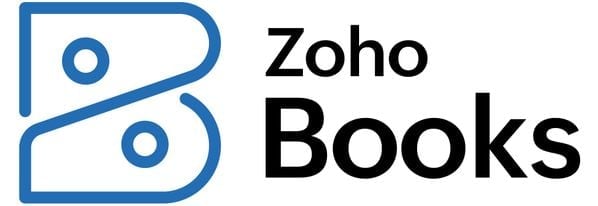Zoho Books vs. QuickBooks: Features Comparison, Pros, Cons
Many, or all, of the products featured on this page are from our advertising partners who compensate us when you take certain actions on our website or click to take an action on their website. However, this does not influence our evaluations. Our opinions are our own. Here is a list of our partners and here's how we make money.
Zoho Books is better for:
QuickBooks is better for:
Zoho Books pros and cons at a glance
Pros
Free plan for businesses making less than $50,000 annually.
Suite of in-house solutions for CRM, social media marketing, HR, etc.
Workflow automations in Professional plan and up.
Cons
Fewer third-party integrations than competitors.
Poor customer support, according to user reviews.
QuickBooks pros and cons at a glance
Pros
Familiarity among accountants.
More than 750 app integrations, including live, in-house bookkeeping.
Variety of in-depth reports in all plans.
Cons
More expensive than many competitors.
Poor customer support, according to user reviews.
Zoho Books vs. QuickBooks: Head-to-head comparison
| Zoho Books | QuickBooks Online | |
|---|---|---|
| Cost |
|
|
| Key features | Has robust reporting tools, but offers fewer reports than QuickBooks. Has customizable invoicing features, advanced inventory control in higher tier plans and a capable mobile app. | Has robust reporting tools and report customization options, unlimited invoicing, inventory tracking in higher tier plans, plus a capable mobile app. |
| Ease of use | Includes tools that help automate the reconciliation process, along with a global search function. Customizable dashboard available in Elite and Ultimate plans. | Includes tools that help automate the reconciliation process, along with a global search function and customizable dashboard. However, there is a learning curve. |
| Scalability | Highest-tier plan includes 15 users (additional users can be added for a fee). Typically serves businesses with fewer than 100 employees. | Can support larger small businesses with dozens of employees. Highest-tier plan includes 25 users. |
| Ease of sharing with accountants | Includes audit trails and easy accountant access. Less popular than QuickBooks Online. | Includes audit trails and easy accountant access. Has millions of users, so your accountant will likely be familiar with it. |
| Integrations | Integrates with no more than 50 third-party apps. Limited choices for point-of-sale integrations. | Integrates with more than 750 apps and offers live, in-house bookkeeping add-on. |
| Customer support | Email support in free plan. Phone and live chat support from 9 a.m. to 9 p.m. ET on weekdays in paid plans. | All plans include phone and live chat support Monday through Friday from 6 a.m. to 6 p.m. PT and Saturday from 6 a.m. to 3 p.m. PT. |
| Advanced features | Includes project tracking tools in higher-tier plans, along with reporting tags. Lacks industry-specific reports. Users with multiple businesses must pay for separate subscriptions. | Includes project tracking tools in the Plus plan. Limited transaction tracking tags. Lacks industry-specific reports. Users with multiple businesses must pay for separate subscriptions. |
Where Zoho Books stands out
In-house apps
Price point
Where QuickBooks stands out
Ubiquity in small-business accounting
Advanced reporting
Zoho Books and QuickBooks alternatives
Starting at $25/monthAdditional pricing tiers (per month): $55, $90. | Starting at $23/monthAdditional pricing tiers (per month): $43, $70, custom. |
Promotion 90% offfor 6 months. | Promotion $250 back in online payment feesfor the first 60 days (applies to new FreshBooks subscriptions). |
Article sources
- 1. 6sense. Market Share for Top Accounting Technologies. Accessed Jan 30, 2026.
Best Accounting Software for Small Businesses










